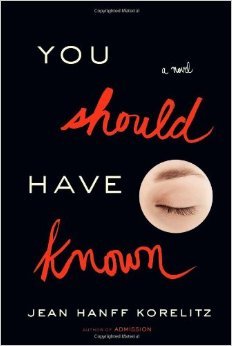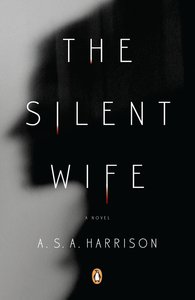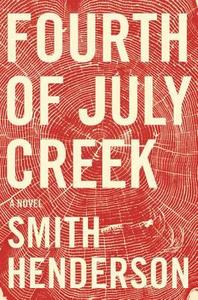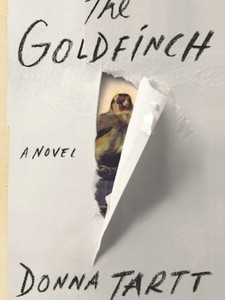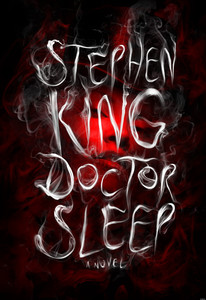
If summer, for you, means the chance to find a beach and lose yourself, for once, in a piece of writing longer than an email, never fear -- we've done the hard work for you and checked out a whole bunch of this year's hottest reads.
It just so happens that in one way or another, a lot of the best books out right now are about addiction. So how convincingly do they portray it?
With a mix of pop fiction, thrillers and novels with more literary aspirations, here is our highly subjective list -- in reverse order -- of the five best in this category:
5. You Should Have Known by Jean Hanff Korelitz
Therapist and type-A protagonist Grace Reinhart Sachs progresses methodically through her days, happy to live the only life she's ever imagined for herself: with her doctor husband and their 12-year-old son in the Manhattan brownstone she grew up in. Her biggest annoyance is the catty mothers at her son's fancy prep school.
But it wouldn't make for good fiction if it didn't all explode in her face. Sure enough, on the brink of publishing her highly anticipated self-help book -- also titled You Should Have Known -- her idyllic life falls apart.
It begins when her husband -- who is, among other things, a sex addict and pathological liar -- goes missing. While the entire story is told through Grace's perspective, it is her husband's demons and addictions that fuel the drama, demonstrating the destruction that addiction can wreak on loved ones.
The author sensitively places the reader in Grace's shoes while unflinchingly exploring her isolation and the struggle to rebuild a life that her husband has destroyed. But then the authenticity takes a vacation -- and the novel swiftly transmogrifies into a thriller perfectly suited to mindless beach consumption.
4. The Silent Wife by A.S.A. Harrison
The Silent Wife follows another female therapist with type-A tendencies. Who also seems to have lost track of her life and husband. This time, a well-off Chicago couple watch as the life they have built over 20 years unravels because of -- you guessed it! -- the husband's addiction and lies. He's a narcissist and alcoholic with a penchant for other women -- but the extent to which his wife may or may not have chosen to overlook his proclivities in their preceding years together is questionable.
Harrison bounces between the wife and husband's POVs, skillfully depicting a complicated web of misperceptions, deceit and threat.
This is neither a heart-stopping thriller nor, exactly, an articulate discussion of addiction. But it does creatively consider the impact alcohol and depression have on all family members, including the "other woman." And as Laura Miller, Salon's book critic, accurately puts it, "the secret of this novel's spell lies not in ingenious twists but in its meticulous plausibility."
3. Fourth of July Creek by Smith Henderson
We meet Pete Snow, a social worker in a small town in the mountains of Montana, as he intervenes on behalf of one of his clients -- a drug-addicted mother who is about to be arrested for attacking her violent teenage son. This is just another day in Pete's life. He has dedicated himself to helping the struggling souls of the town of Tenmile, while avoiding the specters in his own psyche.
Pete becomes consumed by the life of an 11-year-old boy -- found starving and almost feral at a nearby school -- and his dangerously extremist father. But while trying to piece together the lives of these two strangers, he neglects his own teenage daughter, who is left at the mercy of his drunken ex-wife.
Fourth of July Creek is Smith Henderson's first novel, and it displays a keen sense of this unruly Montana landscape and the destitute lives of some of the people who inhabit it. Although just occasionally his depictions of addiction tip towards caricature, he generally succeeds in painting a nuanced picture of the many shades of the condition in rural America.
2. The Goldfinch by Donna Tartt
Theo Decker is a 13-year-old boy living in New York City with his single mother -- until a terrorist attack kills her, and he finds himself abandoned to a bunch of distant relatives and friends.
Donna Tartt thoughtfully depicts Theo's struggles to grieve for his mother while trying to stitch together a new life for himself. He has very little to remember his mother by. But a small, oddly captivating painting that she admired ends up drawing Theo into the underbelly of a completely different world.
Throughout The Goldfinch, Tartt develops a carefully considered discussion of addiction and depression. Theo and his best friend, Boris, hit deep water in their teenage years. Boris appears more self-aware, acknowledging that if anything kills him it will be alcohol and drugs. Theo, on the other hand, is much more inclined to rationalize his addiction, figuring he can quit any time. Right.
Despite being nearly 800 pages long, The Goldfinch is an utterly accessible novel. Its clear narrative depicts addiction with all the white-knuckle authenticity it deserves.
1. Doctor Sleep by Stephen King
Stephen King's long-awaited sequel to The Shining proves not only to be the kind of outstanding thriller of which King and very few others are capable, but also an insightful description of the unnerving reality of an alcoholic in early recovery -- a reality with which King himself is intimately familiar.
Doctor Sleep revisits the adult life of Danny, the preternaturally talented protagonist of The Shining, as he embarks on a wandering alcoholic path of total self-destruction.
Washing up in a small town in New Hampshire, he is able to pull his life together through AA -- and find a productive outlet for his paranormal abilities to boot. Danny's job is to help terminally ill people die peacefully at a local hospice.
Of course, this quiet, sober life doesn't last long. Soon after becoming sober, Danny meets Abra, a telepathic child who will permanently alter the course of his life.
Though the narrative is riddled with AA platitudes, King manages to demonstrate how important the very repetition of these slogans can be to some: Leaning on what he learned through AA, Danny stays sober during some harrowing experiences. King tellingly describes Danny's addiction as a "self-haunting," characterized by the "hungover eye" -- which, he writes, is a "weird ability" of the alcoholic to find the ugliest things in the world around him. His depiction of the life of a recovering alcoholic, within his wider horror story, is, well, thrilling.
